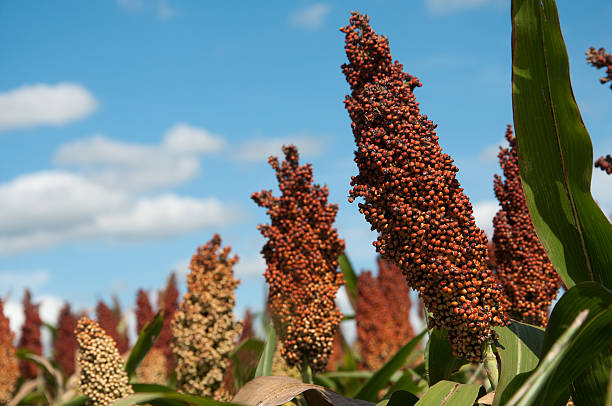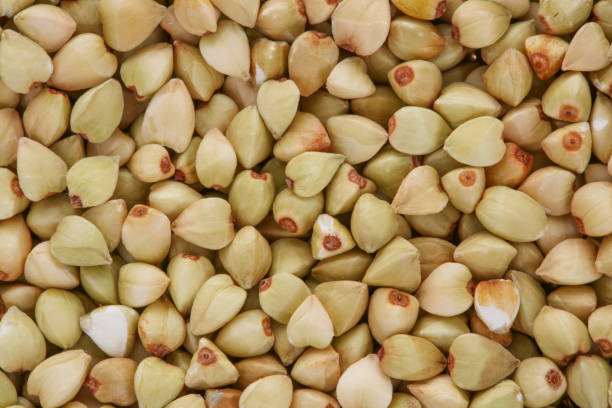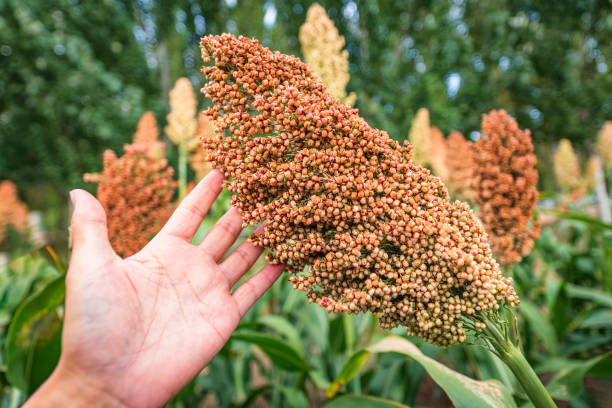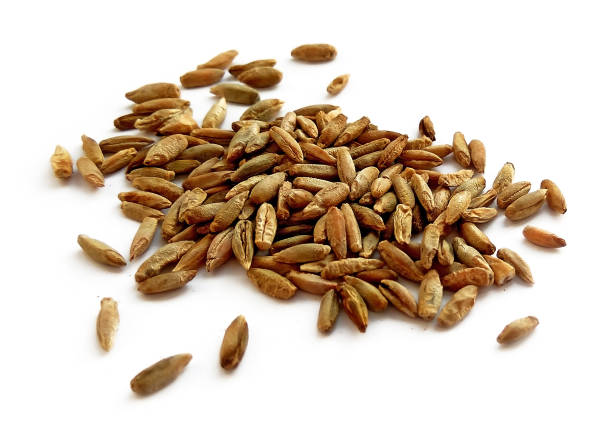In the vast landscapes of agricultural abundance, sorghum stands as a versatile and nutrient-packed grain, offering a myriad of health benefits and culinary possibilities. With its resilient nature and adaptability to diverse climates, sorghum has become a staple in many cultures, contributing not only to global food security but also to the nutritional well-being of those who embrace its wholesome virtues.
Diverse Nutrient Profile:
Sorghum, often referred to as a “smart crop” for its efficiency in resource utilization, boasts a diverse nutrient profile that makes it a nutritional powerhouse. This gluten-free grain is a rich source of essential nutrients, including vitamins, minerals, and antioxidants, making it a valuable addition to a balanced diet.

Abundant Dietary Fiber:
One of the key nutritional attributes of sorghum is its high dietary fiber content. Both soluble and insoluble fibers present in sorghum contribute to digestive health by promoting regular bowel movements, preventing constipation, and supporting a healthy gut microbiome. The fiber richness of sorghum adds a satiating element to meals, making it an excellent choice for those seeking digestive well-being.
Protein Prowess:
Sorghum stands out as a notable source of plant-based protein. The protein in sorghum is rich in essential amino acids, necessary for muscle repair, immune function, and overall cellular health. Incorporating sorghum into the diet provides a valuable protein source for individuals seeking alternative and nutritious plant-based options.

Rich in Minerals (Iron, Magnesium, Phosphorus):
Sorghum enriches diets with essential minerals, including iron, crucial for oxygen transport in the blood. Additionally, sorghum provides magnesium, supporting muscle and nerve function, and phosphorus, vital for bone health. The mineral wealth of sorghum contributes to overall well-being and adds nutritional depth to its profile.
Antioxidant Defense:
Sorghum contains a variety of antioxidants, including phenolic compounds and flavonoids. These antioxidants play a crucial role in neutralizing free radicals, potentially reducing oxidative stress and inflammation. Regular consumption of sorghum may contribute to cellular health and the prevention of chronic diseases associated with oxidative damage.

Gluten-Free Alternative:
As a naturally gluten-free grain, sorghum serves as a valuable alternative for individuals with gluten sensitivities or celiac disease. Its versatility in various culinary applications, from whole grains to flour for baking, makes sorghum an inclusive and nutritious choice for those seeking gluten-free options.
Culinary Versatility:
Sorghum’s culinary versatility extends from traditional dishes to modern culinary creations. It can be used in a variety of forms, including whole grains, flour, or syrup, offering a neutral flavor that adapts well to both sweet and savory preparations. Sorghum’s adaptability in the kitchen adds to its appeal as a wholesome and flavorful grain.

In conclusion, sorghum, with its nutrient richness and adaptability, emerges not only as a global agricultural cornerstone but also as a grain that cultivates health and sustenance. From fiber abundance and protein prowess to a diverse array of vitamins and minerals, sorghum embodies the essence of a well-rounded and nourishing grain. As we appreciate the resilience and nutritional bounty of sorghum, we recognize its role in promoting both global food security and individual well-being, contributing to a healthier and more sustainable future.



